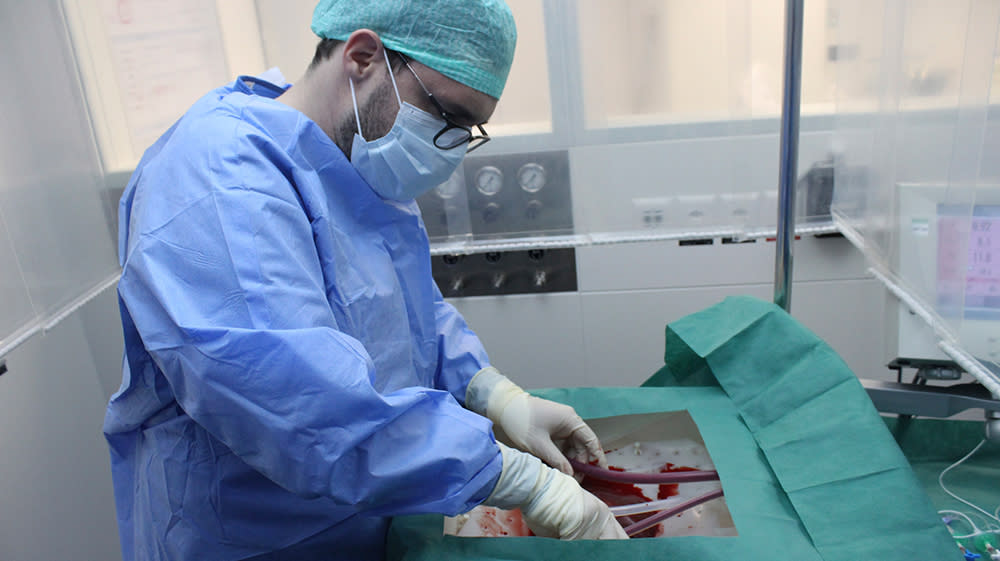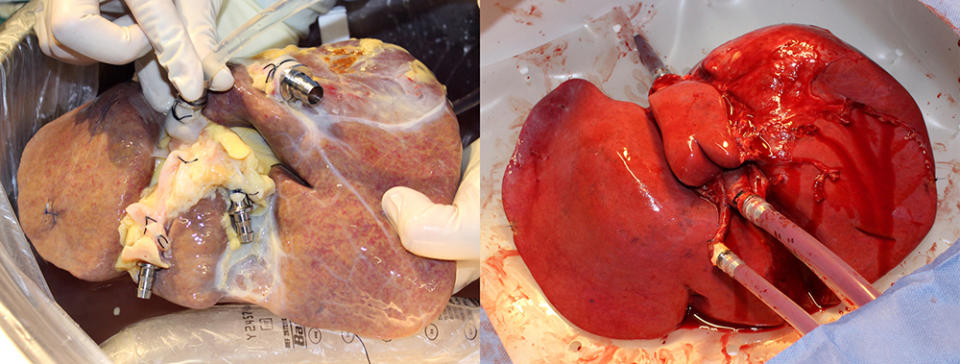Machines 'keep human liver alive for a week outside the body'

A scientific breakthrough could save the lives of people waiting for liver transplants - by keeping organs alive for up to a week outside the human body.
The perfusion technology can also repair the organs, and could vastly increase the number of livers available to transplant patients.
At present, livers can only survive for a few hours outside the body.
Researchers say that the ‘perfusion’ technique, where fluids are circulated through organs, can restore damaged livers to full function.
READ MORE
Stars ‘need a partner’ to set off universe’s brightest explosions
Meet the adorable cat with two different faces
World’s southernmost reef hit by coral bleaching
Binary Earth-sized planets possible around distant stars
Doctors hope the technology could save many lives among patients with advanced liver disease or cancer.
According to scientists from the University of Zurich, injured livers from dead bodies that were not initially suitable for transplant may regain full function while perfused in the machine for several days.
The basis for the technology is a complex perfusion system that mimics most core body functions close to physiology.
Perfusion involves supplying an organ or tissue with a fluid – typically treated blood or a blood substitute – by circulating it through blood vessels or other natural channels.

Professor Pierre-Alain Clavien, chairman of the department of surgery and transplantation at the University Hospital Zurich (USZ), said: “The success of this unique perfusion system – developed over a four-year period by a group of surgeons, biologists and engineers – paves the way for many new applications in transplantation and cancer medicine helping patients with no liver grafts available.”
In the study, six of 10 perfused poor-quality human livers, declined for transplantation by all centres in Europe, recovered to full function within one week of perfusion on the machine.
Researchers say the next step is to use these organs for transplantation.

 Yahoo News
Yahoo News 

